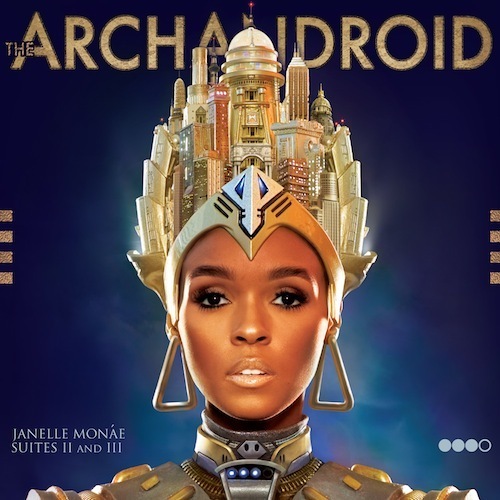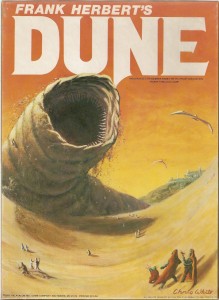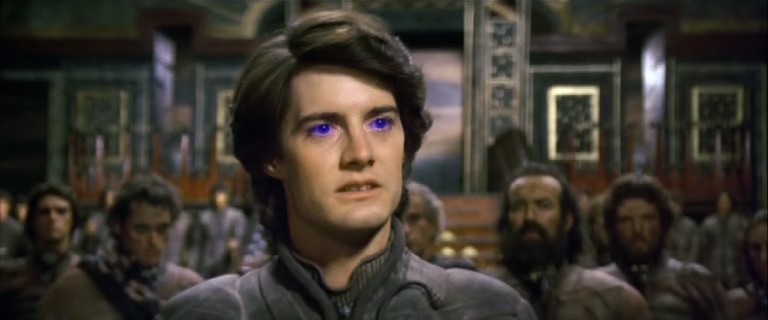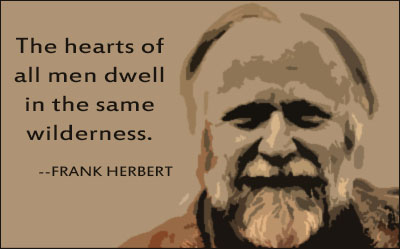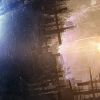“It’s true. All of it. The dark side. The Jedi.”
– Han Solo
 Leia has most definitely lost something. Or… someone.
Leia has most definitely lost something. Or… someone.
Star Wars is full of fodder for Sacred Earthlings with warrior-monk Jedi, the mystical Force and the Manichean struggle between “the dark side and the light,” so as we get closer and closer to The Force Awakens, you’ll probably hear a lot more about it.
Today, though, we’re talking about storytelling — specifically, the success of stories that have related “epic” and “intimate” arcs, and manage to mirror and advance both at the same time. The success of the original Star Wars wasn’t just all about cool-looking TIE fighters and Han Solo shooting first; it was about the personal struggle between father and son that represented the relationship between the Empire and the Rebel Alliance.
 “I’m nobody.” No, Rey. You’re obviously somebody, you look exactly like Natalie Portman.
“I’m nobody.” No, Rey. You’re obviously somebody, you look exactly like Natalie Portman.
There are a lot of successful modern epics out there — stories with national, world-bound or pan-galactic consequences, featuring heroes whose personal success, personal foibles and personal dreams have serious consequences for people all around the world. These stories succeed for a reason. The most recent successful example of this is Avengers 2, when Tony Stark’s hubris creates Ultron, an AI that nearly destroys the world in less than a week. And then there were the unsuccessful examples of this seen in the Star Wars prequels, where Anakin Skywalker’s inability to control his teenage mood swings lead him to become Darth Vader. (It’s a lot cooler in my headcanon, where Anakin is tempted, Jesus-like, with power and glory, and in the end has a crisis of faith that leads him to trap himself in the armor of the dark side, trapped behind the voice and exoskeleton of Vader, divorced from his true self. Come on, it’s totally cooler.) I believe Lucas tried for the dual-level story, the pan-galactic and the personal, and failed with a spectacular “NOOOOOOOOOOOOO!”
I think Star Wars: The Force Awakens is going to succeed where Lucas failed.

Finn regrets all of his decisions.
I haven’t read any spoilers, so this is just wild, rampant speculation, but I believe our heroine Rey and our villain Ren are actually brother and sister; that they’re the Solo twins of the EU re-imagined to Disney’s specifications. Imagine if they were: both of them are Force users, inheritors of the Skywalker blessing through their mother, Leia. Somehow, Ren turns to the dark side, and Rey to the light. (Obvious naming schemes for $300, Alex.) He searches diligently to take on his grandfather’s legacy, unknowing of Anakin’s turn back to the light at the end of Jedi. As a Sith disciple, he’d be attracted to Vader’s power and Vader’s abilities, and want them for his own. Perhaps Rey is hiding from him on Jakku, her own Force training interrupted. Perhaps Leia and Han are watching everything they’ve built and worked for their entire lives fall apart with their own son at the helm of the destruction. Perhaps they’re terrified of losing Rey, too. Perhaps they’ve already lost Luke. Perhaps they know they must move against their own child, and it’s killing them. Gulp.
All of a sudden, a pan-galactic conflict also becomes intimate, one family’s tragic story writ large. How incredibly cool. Who could resist telling — or getting involved — in a story this delicious?
 A burned testament to the truths of George Santayana.
A burned testament to the truths of George Santayana.
There’s a hint of Battlestar to the trailer, too, the deja-vu visuals, and the unshakable feeling that all of this has happened before and all of this will happen again; it’s the endless Manichean struggle between dark and light that characterizes the Star Wars extended universe, of course. Played well, it should be less of a brick point (you know, where the plot hits you over and over the head with the Obvious Brick) and more of an atmospheric note.
Also, THIS GUY.
Use the Force, JJ. Don’t let us down!
If you haven’t seen the trailer, I’ve embedded it here:




